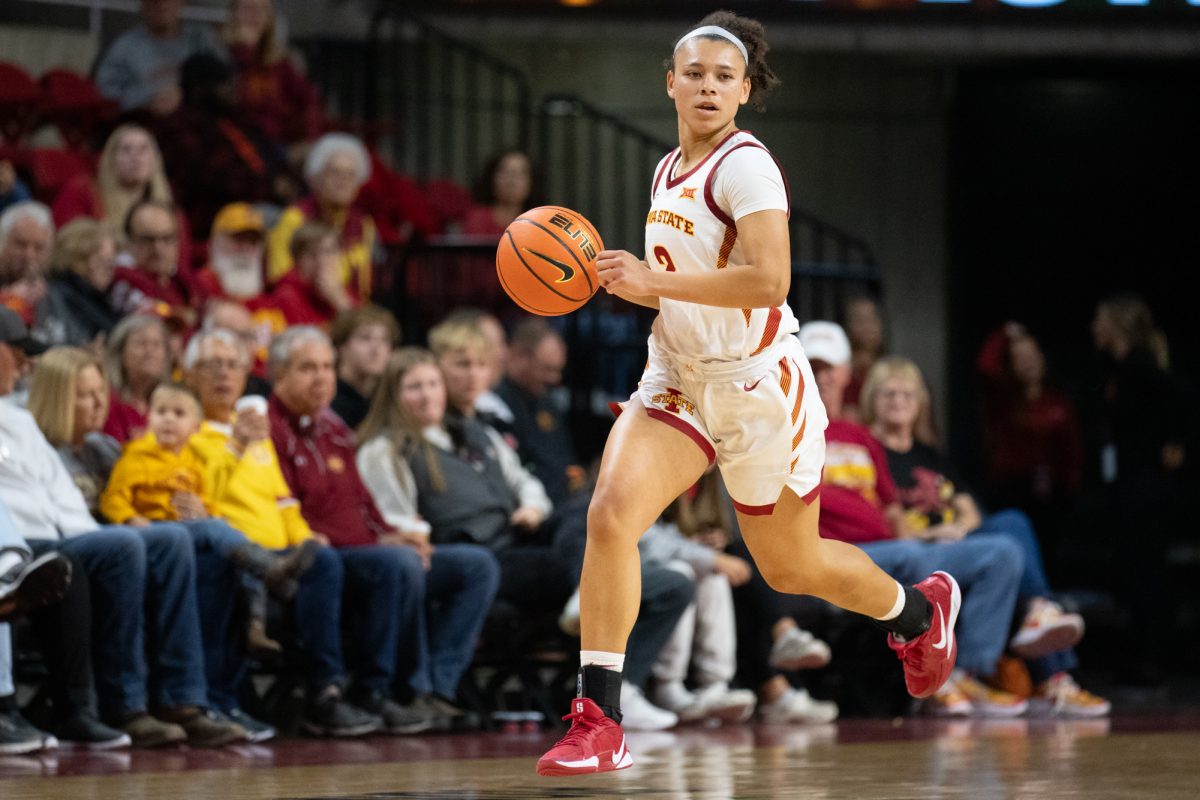Professor is studying quality of Iowa lakes
April 5, 2001
An ISU faculty member is studying Iowa’s lakes to see if they are adversely affected by human activity.
John Downing, professor of animal ecology, is working on a five-year project with the Iowa Department of Natural Resources to study the water quality of Iowa’s lakes.
For the second summer, Downing will be making three trips to each of the 132 publicly owned lakes around the state. The project is aimed at making an inventory of the water quality in the lakes.
From what he has found, Downing said overall, Iowa lakes are overfertile, which is not a good thing.
“It’s very much like overfertilizing a lawn,” he said. “It doesn’t do much good.”
Nutrient levels are a good indicator of poor water quality, Downing said.
Water high in nutrients promotes bacteria that can cause problems in taste, odor and toxicity, he said, and the water becomes less useful for both animal and human consumption.
It has been nearly a year since the project began, but Downing said data they collected is still insufficient to reach a conclusion on water quality in each lake.
However, he would not be surprised if final results reveal most of the lakes don’t meet water-quality criteria, as Iowa lakes are among the most nutrient-rich lakes that exist.
“It is fairly well known that agricultural landscapes lose a lot of nutrient,” Downing said. “When they lose [nutrient], where does it go? It goes back into the water.”
Although agricultural run-offs do significantly contribute to an increased nutrient level, Downing said higher nutrient levels also may occur naturally.
Joy Ramstack, assistant scientist of animal ecology, is one of the professional staff members on the team.
During the summer, more than a dozen undergraduate students and a few graduate students will also work on the project, she said.
In the field, Ramstack said scientists measure parameters such as water clarity and temperature. Additional analyses on nutrients such as nitrogen and phosphorus are conducted in the lab.
“We made over 150,000 field measurements last year alone and probably more than 20,000 lab measurements in a year,” Downing said.
A $1.8 million grant from the DNR made the survey possible, he said.
Bernard Hoyer, supervisor of the DNR Water Monitoring Section, said the DNR has a long, successful history of working with the ISU Department of Animal Ecology.
“It really makes sense working with someone you know,” he said.
Hoyer said charting the condition of the lakes allows the department to use its money more efficiently in restoring and fixing lakes.
“What’s done now is more sophisticated,” he said. “We’re doing it five years in a row.”
The water-quality inventory for Iowa began in 1979, Hoyer said, and Roger Bachmann, former ISU professor in animal ecology, conducted the most recent study in the early 1990s.
With more recent information, Hoyer said the lakes can be separated into classes. If needed, additional studies on some of the lakes may be carried out.
He said the DNR will use collected information to establish a monitoring program for lake water quality in the future.
The inventory survey of Iowa lakes will also be useful to the state. Downing said an acre of lake can generates tens of thousands of dollars per year in terms of recreational benefits.
“People need to have recreation,” he said. “We don’t work 24 hours a day.”
Downing said lakes constantly are impacted by human activities, and they will lose their benefits if not repaired.
“Water is probably our No. 1 natural resources,” he said. “The quality of life of Iowans can be further improved by studying, understanding and restoring high water quality.”






